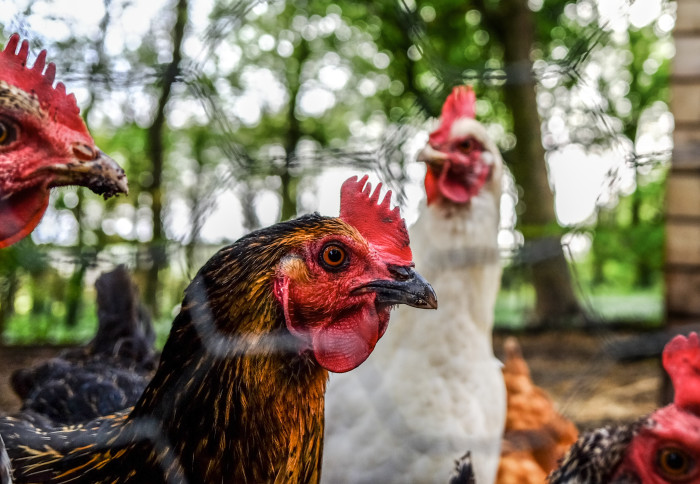Imperial joins UK’s top scientists to battle bird flu outbreaks
by Ryan O'Hare

Imperial researchers join scientists at some of the UK’s leading research institutions as part of a major new consortium to counter bird flu.
The consortium aims to develop new strategies to tackle future bird flu outbreaks, with £1.5 million in funding from the Biotechnology and Biosciences Research Council (BBSRC) and the Department for Environment, Food and Rural Affairs (Defra).
Professor Wendy Barclay, Head of Imperial’s Department of Infectious Disease, will lead Imperial’s contribution, with the College one of eight partner institutions of the consortium, which will be led by the Animal and Plant Health Agency (APHA).
Ultimately, we hope the work will help to minimise the risk of bird flu outbreaks, and zoonotic transmission of potential pandemic strains, in future.” Professor Wendy Barclay Department of Infectious Disease
This year’s avian flu outbreak has been the largest and longest ever experienced in the UK and in many parts of Europe, affecting poultry and seabird populations.
The outbreak started earlier than previous years after the virus continued to circulate in Europe over summer 2021 and led to over 100 cases of infected birds in the UK.
It is hoped the consortium will be able to find new ways to contain future outbreaks, boosting the UK’s poultry sector and rural economy, which has experienced significant disruption from this year’s outbreak with compulsory indoor housing measures put in place to protect poultry from the disease.
The consortium will focus on building our understanding in a number of key areas, including:
- What enables the viruses to form larger and longer outbreaks
- Understanding transmission and infection in different bird populations, including how the virus transmits from wild birds to farmed poultry, the gaps in biosecurity that allow the virus to penetrate premises, and how this could be addressed
- Mapping and modelling the spread of infection over time and across animal species
- Why some birds, such as ducks, are more resistant to bird flu strains
- Developing models to predict how the viruses will evolve and spread in the future
- Inform risk mitigation measures in birds to reduce disease burden thereby protecting against zoonotic transmission occurring from animals to humans.
Professor Wendy Barclay said: “Avian influenza represents a significant ongoing threat to animal and human health. As part of this new consortium, our team at Imperial with work closely with colleagues at partner institutions and health agencies in the UK and around the world to map how infections spread through birds and other species. Ultimately, we hope the work will help to minimise the risk of bird flu outbreaks, and zoonotic transmission of potential pandemic strains, in future.”
UK’s Chief Veterinary Officer Christine Middlemiss said: “This new consortium will allow us to combine our expertise at a national level to increase the speed and quality of our research, ensuring we can develop new strategies to aid our efforts against this insidious disease and hopefully in time reduce the impact on the poultry sector.”
Professor Ian Brown, APHA’s Head of Virology and project manager, said: “This investment in a new research consortium will bring together the greatest minds from eight world-leading British institutions to address gaps in our understanding of bird flu, helping us to control the spread of the disease, while furthering UK animal health science and ensuring we maintain our world-leading reputation in the field.”
Professor Melanie Welham, Executive Chair of BBSRC, said: “One of the real strengths of the UK’s scientific response to disease outbreaks is the way that we can draw on leading researchers from all over the country, who can pool their expertise to deliver results, fast. This new national consortium will study the unprecedented avian influenza outbreak to better understand this latest strain and how to tackle it. This will feed rapidly into government decision-making and new strategies to protect the poultry industry and reduce the risk of future transmission to humans.”
UK researchers are already world-leaders in studying bird flu, with the APHA hosting an International Reference Laboratory, which conducts testing on global samples and rapidly shares the latest information internationally on outbreaks. The knowledge gathered will also be shared with international partners to aid their efforts to tackle the disease with benefits for global risk mitigation.
The consortium includes specialists from APHA, The Pirbright Institute, the Royal Veterinary College, The Roslin Institute (University of Edinburgh), Imperial College London and the universities of Cambridge, Leeds and Nottingham.
Members of the consortium will also attend a global session this month, hosted by the US Department of Agriculture, where they will influence and coordinate future investment into animal influenzas on an international basis.
-
This article is based on press materials from the APHA
Main image: Shutterstock
Article supporters
Article text (excluding photos or graphics) © Imperial College London.
Photos and graphics subject to third party copyright used with permission or © Imperial College London.
Reporter
Ryan O'Hare
Communications Division